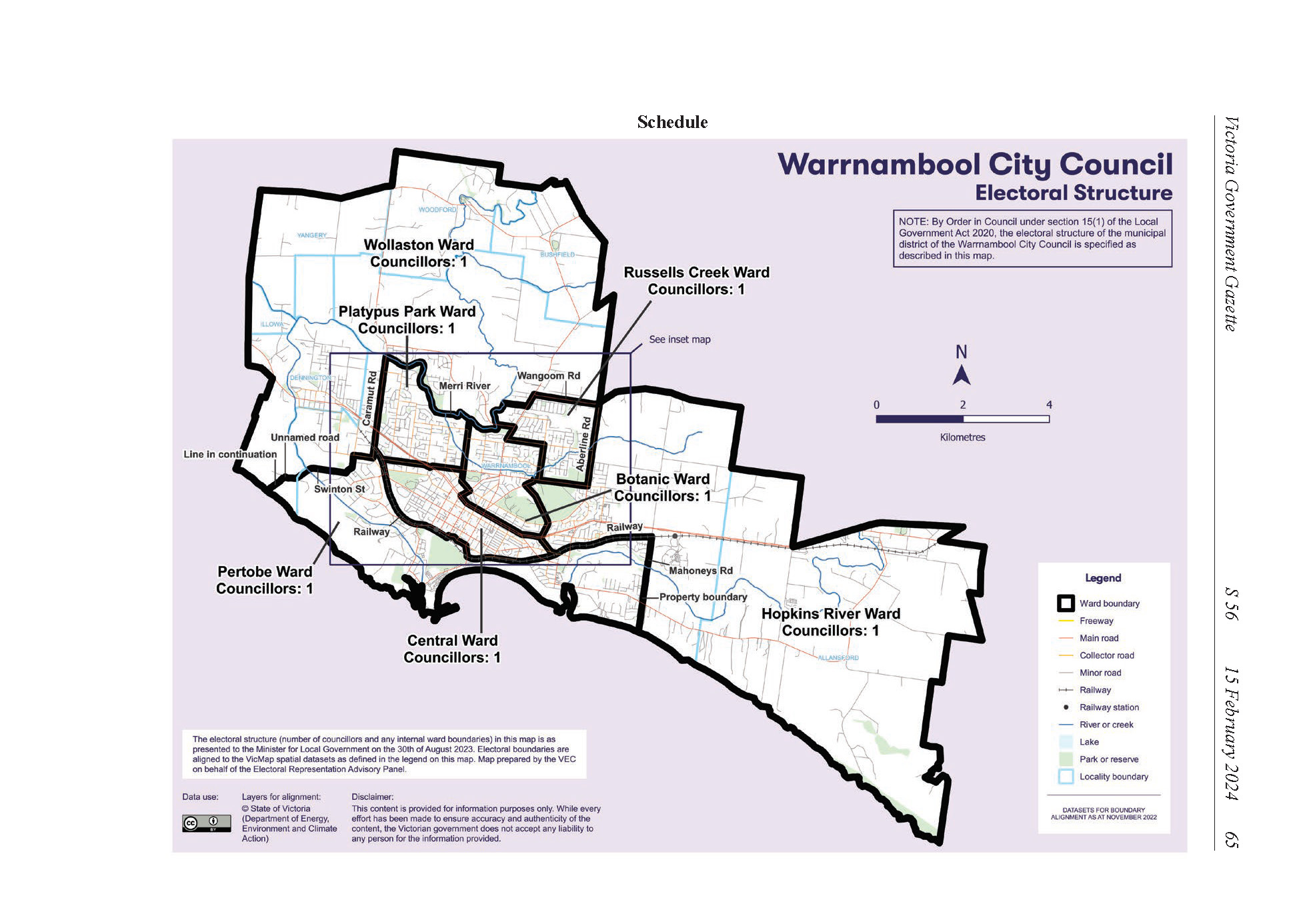Warrnambool will have a seven-ward electoral structure for the Local Government elections to be held later this year.
The changes were announced by Local Government Minister Melissa Horne, who accepted the recommendation from the Victorian Electoral Commission that Warrnambool should be divided into seven single-councillor wards.
Warrnambool City Council Chief Executive Officer Andrew Mason acknowledged the new arrangements and said defining wards based on communities of interest and projected growth was a difficult challenge.
“The seven wards as defined by the VEC are Botanic, Central, Hopkins River, Pertobe, Platypus Park, Russells Creek and Wollaston
“The wards have voting age populations which range from 3,662 to 4,250.
“The VEC has acknowledged that grouping Dennington in with rural communities to the north including Woodford was not ideal but notes that given Dennington’s high projected growth the Wollaston ward is likely to be split at some future point.”

In its final report the VEC states that “there may well be no perfect single-member ward structure for regional city councils like Warrnambool. However, the panel must comply with the legislative requirements of the Act”.
The panel also believed that, based on past elections, it was unlikely there would be a scenario in which there would be uncontested or failed elections due to a lack of nominations across all wards.
“However the panel notes that prior to changing to an unsubdivided electoral structure in 2004, the council had a history of uncontested elections under a structure of single-councillor wards,” the VEC report noted.
Mr Mason said in its submission to the VEC, Council had argued that the Dennington community should be in its own ward, that Russells Creek should maintain more of a northern corridor and border Alberline Road and that the Botanic ward should extend to north to Russells Creek.
“We also suggested a ward dedicated to the South Warrnambool and Merrivale communities.
“But mapping out the wards is a tough exercise and with the finalising of the process, voters now know the wards they are voting in, while prospective candidates can approach an election knowing where and who their voter base is.”






